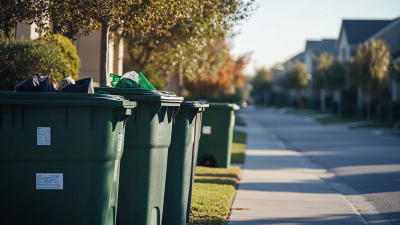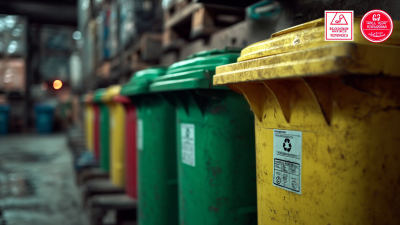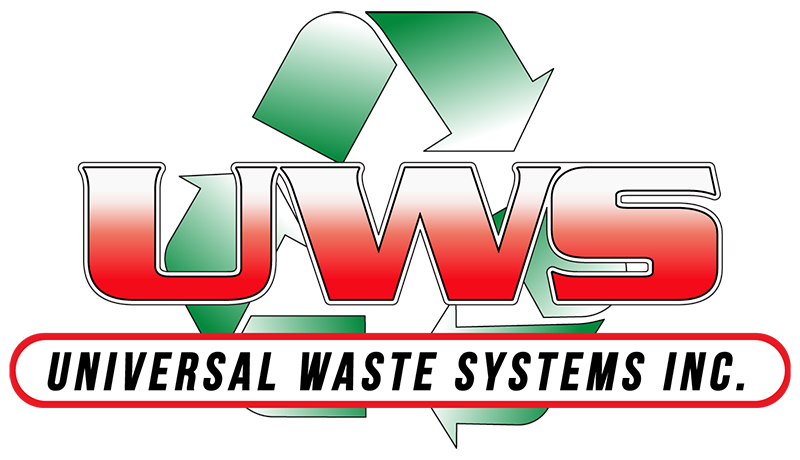Blog
Innovative Solutions for Efficient County Waste Management
In the face of escalating environmental challenges and increasing population density, efficient County Waste management has emerged as a critical focus for local governments across the globe. According to the U.S. Environmental Protection Agency, approximately 292.4 million tons of trash were generated in the United States in 2018, with a considerable percentage being disposed of in landfills, highlighting the urgent need for innovative waste management solutions. Counties are at the forefront of this initiative, tasked with developing strategies that not only minimize waste but also enhance recycling and composting efforts. Recent studies indicate that implementing effective waste management strategies can lead to a 30% reduction in landfill utilization, significantly lowering greenhouse gas emissions. As counties strive to create sustainable communities, adopting cutting-edge waste management practices stands as a top priority to ensure a cleaner and healthier environment for future generations.

Exploring the Role of Digital Technology in Streamlining Waste Collection Processes
The integration of digital technology into county waste management is transforming how waste collection processes are executed. Advanced software systems and mobile applications enable local governments to plan, monitor, and optimize their waste collection routes more effectively. By utilizing real-time data analytics, county officials can track waste generation patterns, anticipate service demands, and adapt their operations to ensure timely pickups. This innovative approach not only enhances operational efficiency but also reduces fuel consumption and minimizes the environmental impact of waste collection vehicles.
Moreover, the implementation of smart waste bins equipped with sensors that report fill levels is revolutionizing traditional collection methods. These bins allow waste management teams to prioritize collections based on actual need rather than a fixed schedule. As a result, collection crews can adjust their routes dynamically, ensuring that they focus on areas that require immediate attention. This not only improves service delivery but also contributes to better resource allocation and workforce management, paving the way for smarter, more responsive waste management solutions in counties.
Best Practices from Innovative Counties in Sustainable Waste Management
In exploring best practices from innovative counties in sustainable waste management, one can draw insights from recent achievements across the Southeast Asian region. Indonesia, which recently garnered five awards at the ASEAN Environmentally Sustainable Cities Awards, showcases how local governments can effectively implement waste management strategies that emphasize sustainability. These accolades highlight not only their commitment to reducing waste but also their innovative approaches, such as utilizing local resources and fostering community participation in recycling initiatives.
Furthermore, Zhejiang Province in China exemplifies a systems-oriented approach to tackling plastic pollution. By adopting a smart governance model, Zhejiang has initiated comprehensive strategies aimed at creating a circular economy for marine plastic waste. This innovative framework not only focuses on efficient waste collection and processing but also engages local communities through education and awareness programs. Such practices serve as a blueprint for other counties aiming for sustainable waste management, illustrating the potential of integrating technology and community involvement to achieve broader environmental goals.
Innovative Solutions for Efficient County Waste Management - Best Practices from Innovative Counties in Sustainable Waste Management
| County | Population | Recycling Rate (%) | Composting Rate (%) | Citizen Engagement Programs | Innovative Solutions Implemented |
|---|---|---|---|---|---|
| County A | 250,000 | 45 | 30 | Community Workshops, School Programs | Smart Waste Bins, Mobile App for Waste Tracking |
| County B | 400,000 | 50 | 25 | Incentive Programs, Neighborhood Clean-up Days | Recycling Rewards Program, Composting Workshops |
| County C | 150,000 | 38 | 35 | Social Media Campaigns, Informational Seminars | Data Analytics for Waste Collection, Zero Waste Events |
| County D | 300,000 | 55 | 20 | Partnerships with Local Businesses | Waste-to-Energy Initiatives, Educational Outreach |
Leveraging Data Analytics for Effective Waste Reduction Strategies
In today's world, effective waste management is a growing concern for counties aiming to promote sustainable living. Leveraging data analytics plays a crucial role in understanding waste patterns and creating efficient reduction strategies. By collecting and analyzing data from various sources, local governments can identify trends in waste generation, pinpoint the most significant contributors, and tailor interventions that resonate with their community's unique waste profile.
Data analytics empowers counties to implement predictive modeling, enabling them to forecast future waste generation based on various factors such as population growth, seasonal changes, and local events. By understanding these influencing elements, waste management programs can adapt proactively, optimizing collection routes, resource allocation, and community engagement initiatives. Furthermore, real-time data collection through smart bins and IoT devices can provide immediate insights, allowing for dynamic adjustments to waste management strategies and enhancing overall efficiency.
Additionally, effective communication of data-driven findings to the community fosters greater public participation in waste reduction efforts. Educational campaigns can be customized based on analytical insights, highlighting the importance of recycling and composting while addressing specific local challenges. Ultimately, by harnessing the power of data analytics, counties can not only streamline their waste management processes but also cultivate a culture of sustainability among residents.

Implementing Smart Bins: Enhancing Recycling Efficiency in Local Communities
 Implementing smart bins is a transformative approach to enhancing recycling efficiency in local communities. These technologically advanced waste containers are equipped with sensors that monitor fill levels in real-time, enabling efficient collection schedules. According to a 2022 study by the Environmental Protection Agency (EPA), cities that adopted smart waste management systems saw a 30% reduction in collection costs and a 25% increase in recycling rates compared to traditional methods. This data highlights the financial and environmental benefits of such innovations.
Implementing smart bins is a transformative approach to enhancing recycling efficiency in local communities. These technologically advanced waste containers are equipped with sensors that monitor fill levels in real-time, enabling efficient collection schedules. According to a 2022 study by the Environmental Protection Agency (EPA), cities that adopted smart waste management systems saw a 30% reduction in collection costs and a 25% increase in recycling rates compared to traditional methods. This data highlights the financial and environmental benefits of such innovations.
Moreover, smart bins can improve user engagement in recycling practices. With features like RFID tags and mobile app integration, residents receive instant feedback on their disposal habits, fostering a sense of accountability. A report by the Waste Management Research Institute indicated that communities utilizing smart bins experienced a 40% rise in proper recycling behavior, significantly decreasing contamination rates. As local authorities invest in these solutions, they pave the way for more sustainable waste management practices that not only enhance community efficiency but also contribute to a cleaner environment.
Community Engagement: Driving Participation in Waste Management Initiatives
Community engagement plays a vital role in enhancing participation in waste management initiatives. When residents are actively involved, they are more likely to adopt sustainable practices that benefit the entire community. Organizing local clean-up days or recycling workshops can foster a spirit of teamwork and responsibility. It’s essential to create platforms where residents can voice their concerns and suggestions, ensuring that their opinions are valued and incorporated into waste management strategies.
To motivate community involvement, consider sharing tips that empower residents to take action. For instance, provide educational materials about the importance of waste segregation and recycling. Host friendly competitions to encourage families to reduce waste or participate in recycling challenges. These activities can create a sense of camaraderie and accountability among neighbors. Utilize social media to celebrate individual and collective achievements, showcasing the positive impact of their efforts on the community's environment.
Engaging communities in waste management initiatives not only improves efficiency but also instills a sense of pride and ownership in local environments. By harnessing the enthusiasm of community members, counties can create lasting change in waste management practices, ensuring a cleaner and healthier space for future generations.
Related Posts
-

Leading Garbage Pickup Solutions from a Top Exporting Manufacturer Worldwide
-

Leading the World in Waste Management Solutions: The Best Waste Pickup from Top Exporters
-

The Ultimate Handbook for Global Buyers: Mastering Trash Disposal Solutions
-

2025 Waste Management Trends and Insights on Optimizing Trash Pickup Solutions
-

Maximizing Global Business Opportunities at the 137th Canton Fair with County Waste Solutions
-

Global Certification Secrets for the Top 10 Best Waste and Recycling Solutions in 2023
Request a Quote
Fill out the form below and one of our specialists will contact you to discuss your questions and needs.
